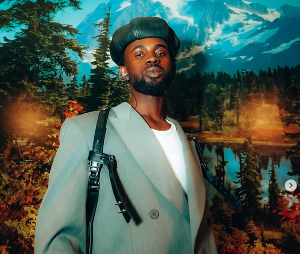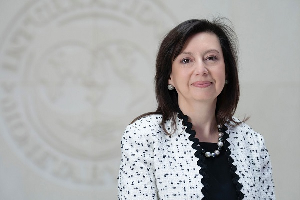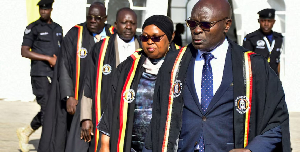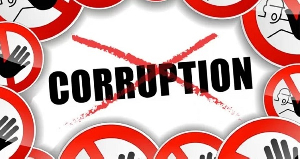United Nations (UN) official in Ghana, who has been forced to defend a school sex education programme together with Akufo-Addo government officials, after religious groups said it was part of a “satanic” attempt to promote Lesbian, Gay, Bisexual and transgender (LGBT) values, has stated that it is just a matter of time for Ghanaians to embrace what they think is a global phenomenon.
According to Niyi Ojuolape, Country Representative for the UN Population Fund (UNPF) in Ghana, it will take time for the programme to be approved and teachers trained, but he is expecting a positive outcome after the debate, adding “at the end of the day, Ghana cannot be left behind from the rest of the world.”
He was speaking to Reuters news agency, an international news organization in reaction to the National Coalition for Proper Human Sexual Rights and Family Values, position that age six, was too young to start learning about sex and criticized a module called “being a male or female”.
President Akufo-Addo, has remained silent on the issue, living other officials of his government to speak, albeit with so many inaccuracies.
They had said the Comprehensive Sexuality Education (CSE) programme, which was devised by the United Nations and Ghana’s government, had no explicit LGBT+ content.
Ghana’s Education Minister, gave a press conference on Tuesday, urging critics to check the facts and assuring them that the curriculum – which has not yet been implemented – would not compromise national values.
The UNPFofficial, went on television to try to calm the uproar.
“They think it’s all based on foreign influence. That’s the issue,” said Niyi Ojuolape, country representative for the U.N. Population Fund in Ghana, emphasizing that the curriculum was designed by Ghanaians with the local context in mind.
“The curriculum does not include LGBT issues explicitly, but of course LGBT issues are human rights, so we talk about the rights of the individual to determine what they want to do,” he told the Thomson Reuters Foundation.
CSE teaches sexual and reproductive health with an emphasis on “values such as respect, inclusion, non-discrimination, (and) equality,” according to the U.N. Educational, Scientific and Cultural Organization (UNESCO).
Christian groups in the West African country have said it is part of an “active strategy” to spread LGBT+ acceptance in Africa.
“I call it comprehensive satanic engagement,” said Paul Yaw Frimpong-Manso, president of the Ghana Pentecostal and Charismatic Council, on local radio station Joy FM.
Same-sex relations are banned under a colonial-era law in Ghana, and homophobia is common, although prosecutions are rare, according to Human Rights Watch.
Representatives of LGBT+ rights groups in Ghana said they were saddened by the backlash, but that most of the content of the proposed curriculum was already taught in schools.
“I think most people are arguing from an ignorant point of view,” said Shone Edem, spokesman for Ghana’s Alliance for Equality and Diversity.
The education minister said in a statement that the new curriculum has not yet been approved for use. UNESCO did not immediately respond to a request for comment.
Meanwhile, the Member of Parliament (MP) for North Tongu, Samuel Okudzeto Ablakwa, feels the government is in a tough position, following the developments in Comprehensive Sexuality Education (CSE) brouhaha.
According to him, the NPP government is not being truthful in the matter.
In a statement, the former Deputy Education Minister, said the controversy would be tough for the government to navigate “as long as they refuse to be candid and transparent over the CSE saga.”
“Only sincere backtracking and a total full disclosure shall set Government free.”
The government and United Nations Education, Scientific, and Cultural Organisation (UNESCO) launched the CSE programme in February 2019 but in the past week, concerns have been raised about the potential for pupils to be given awareness of sexuality and LGBTQ issues at too early a stage.
The Government cleared the air on the matter saying the approved curriculum framework for basic schools does not include CSE.
Since the government’s statement, observers have pointed out contradictions in the government’s earlier reception to CSE.
At the launch in February, the Education Minister, Dr. Matthew Opoku Prempeh said:
“It is in this light that Ghana welcomes the ‘O3’ initiative and the Regional Acceleration program which seeks to accelerate and deepen the scope of existing CSE in six beneficiary countries.”
Amid the confusion, Mr Ablakwa noted the government will also need to appease the Swedish government, which he claimed has already contributed money to the programme.
The governments of Sweden and Ireland are known to be sponsors of the programme.
“On one hand they need to calm down outraged Ghanaians who are running out of patience with the many official contradictions and untruths; on the other hand they need to convince the Swedish Government which has already committed $22million to Ghana and the other 5 CSE Program Acceleration Countries that Ghana will justify the use of their tax payer dollars especially when one of the key deliverables upon which our Government received the first tranche of money is a promise to ‘overcome social resistance and operational constraints.’”
In addition, Mr Ablakwa, also said the government had to deal with the United Nations Population Fund “in the face of current denials after agreeing with them to provide CSE technical support to the GES.”
Find below his full statement
This is going to be a tough manoeuvre for the Education Minister, Dr. Matthew Opoku Prempeh and more generally the Akufo-Addo government, as long as they refuse to be candid and transparent over the CSE saga.
On one hand they need to calm down outraged Ghanaians who are running out of patience with the many official contradictions and untruths; on the other hand they need to convince the Swedish Government which has already committed $22million to Ghana and the other 5 CSE Program Acceleration Countries that Ghana will justify the use of their tax payer dollars especially when one of the key deliverables upon which our Government received the first tranche of money is a promise to “overcome social resistance and operational constraints.”
Also, what will our Government be telling UNFPA in the face of current denials after agreeing with them to provide CSE
technical support to the GES?
Then, what happens to the contract signed with the special CSE Project Implementation Officer operating from the UNESCO Ghana office?
Already, Ghanaian teachers have exposed the Minister of Education with page 11 of the Teacher Resource Pack for Primary 1 – 6 which shamefully contradicts the Minister’s assertions in his signed statement that there is no inclusion of CSE.
The Ghanaian people are certainly more informed about this issue than Government assumes. Only sincere backtracking and a total full disclosure shall set Government free.
Very interesting days ahead.
General News of Friday, 4 October 2019
Source: theheraldghana.com
‘Don’t stampede govt to undertake unplanned projects’ - UN Rep in Ghana
Entertainment












